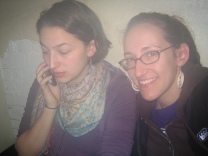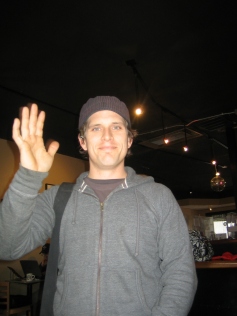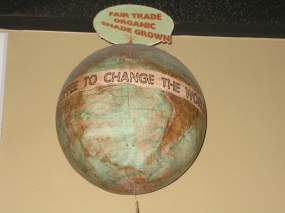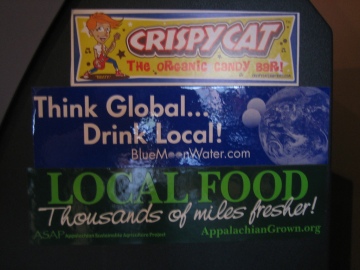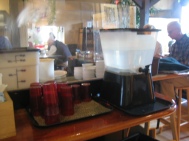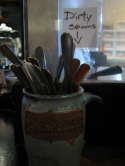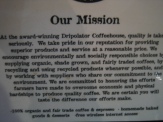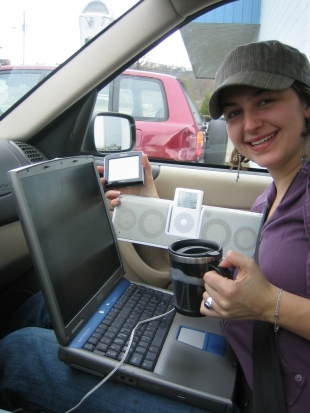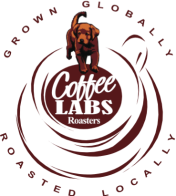March 11, 2008
A delicious perk of the road trip is that we get to reconnect with old friends all over the country. Travis is one of those people. Travis and his family live just south of Denver so we decided to spend a night with our almost long-lost friend. Travis and his wife Liz are the proud parents of two entirely edible boys, Issac and Caleb. We woke up on the 11th to Issac climbing running into our room: “Wakie-Wakie! Eggs and Bakie!”. Now, under any normal circumstances Melanie would have growled darkly and round-house kicked anything making that much noise that early. But, because it was a sweet high-voiced certain round-faced little boy, Melanie’s heart jumped out of her chest, poured rainbows and pink bunnies in the air and melted into a puddle in Issac’s palm. “Hi, girls!” And it was off to the Kitchen for breakfast.
While Sara helped Issac get breakfast ready…
 Melanie snuck upstairs to get Caleb ready for breakfast…
Melanie snuck upstairs to get Caleb ready for breakfast…
Ok, I confess, I ate every single one of those fat little baby toes. I blew rasperries in his belly, and was completley mushy-gushy-baby-noises-silly-faces-absolutely-enamored-with-this-9month-old.”
After breakfast Issac decided to show us his newest trick….
Winking!
Issac went to School and we convinced Travis to take the day off work and take his youngest son to the Denver Art Museum.
And now….for the moment you have all been waiting for….We reveal…the BEST CAPPUCCINO of CoffeeInAction: Road Trip 2008…..(drum roll please)…..
The award goes to….the cafe on the second floor of the Denver Art Museum. Yes, we were surprised too – museums are not known for their high quality coffee but Novo Coffee operates the cafe and Hanna, the barista, simply blew us away with her double cap and awesome stripped socks. (No pictures allowed in the museum – sadface.)
We finished our SUPURB cap and said good by to Sir Roundface McGigglepants and his father. It was time to head to Allegro.
and his father. It was time to head to Allegro.
Allegro was the biggest coffee roaster we were going to see on this trip, and this fact alone peaked our interest. We wanted to see how a larger wholesale company operated (and see the big machines, heh, heh, heh). Most people who know of Allegro know it because they are the primary roaster for Whole Foods Markets.
Holly met us in the large comfortable first floor cafe, where she introduced us to  Laura Bullock who gave us a tour of the facility.
Laura Bullock who gave us a tour of the facility.
Allegro is a company interested in social responsibility and environmental sustainability. Their main faciltiy in Colorado is 100% wind powered. Their website explains more about their buying practices and their business philosophy. You can check out their “Socially Responsible Score Card” here
We spent most of our time milling around in the Cupping Lab. Apparently word of our visit got around the office because over the next hours almost everyone in house, from Allego President, Chris Thorns to the entire marketing staff (Hi Mike, Tara, Jeff, Heather, Holly, and Laura!) came down to say Hi and chit-chat with the “Coffee girls”.



Heather Zapletal, the Director of Sales, started to set up for a “scent” training, with hundreds of small bottles each filled with a different scent. We all got to try our hand at guessing the smells – its really hard to tell “browning sugar” from “caramel”; there was even “earth” smell (which Sara identified as beets) and “basmati rice”.
We ended the night back at our beloved Kate’s house and hit the hey early because our morning would come too soon.
-Melanie and Sara Rose.






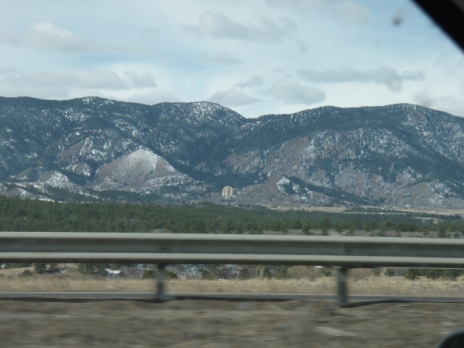
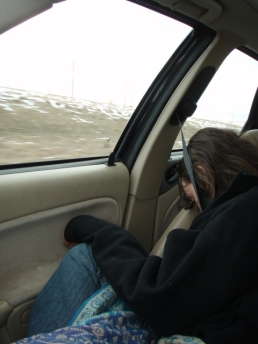
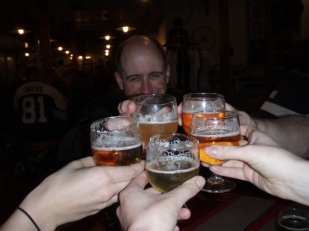


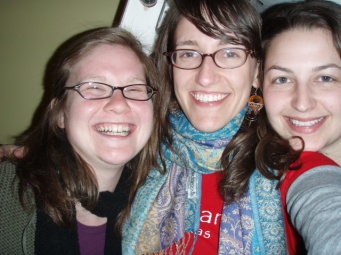
 Th
Th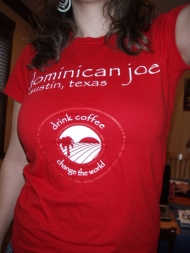
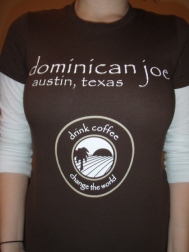


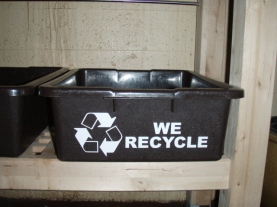

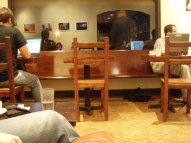

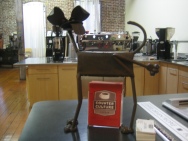
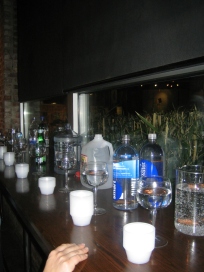 (but from what we hear Atlantans don’t do much walking).
(but from what we hear Atlantans don’t do much walking).